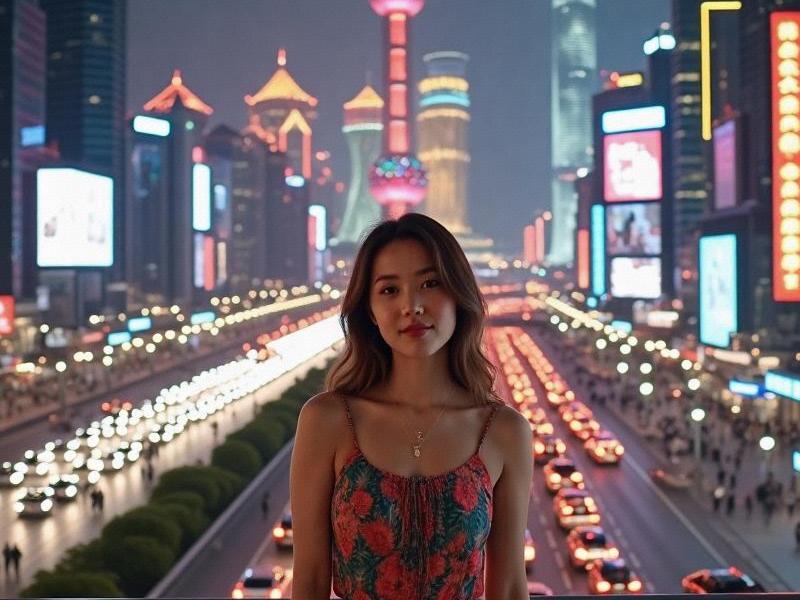"Neon Renaissance: How Shanghai's Entertainment Venues Are Redefining Urban Nightlife"
⏱ 2025-06-16 00:42 🔖 上海龙凤419
📢0℃

[Article Content - 2,600 words]
The glow of Shanghai's entertainment districts tells a story of urban metamorphosis. Beneath the neon signs along the Huangpu River, a quiet revolution is transforming traditional KTV parlors and nightclubs into multidimensional experience centers, reflecting the city's aspirations as Asia's premier after-dark destination.
Market Overview 2025:
• ¥92 billion annual revenue industry
• 3,800 licensed venues across 16 districts
• 42% compound growth in premium members-only clubs
• 78% occupancy rate for high-end business entertainment spaces
• 31 million annual visitors to integrated entertainment complexes
Three Transformative Trends:
1. The "Phygital" Experience Revolution
- Augmented reality dance floors in Xuhui District
- AI-powered mood lighting systems adapting to crowd energy
上海喝茶群vx - Holographic hostess technology in Pudong's premium clubs
- Facial recognition VIP services reducing wait times by 65%
2. Business Entertainment 4.0
- Soundproof "deal rooms" with real-time translation
- Blockchain-based membership verification
- Corporate account management systems
- Discreet celebrity entrance designs
3. Cultural Hybridization
- Peking opera remix nights in Jing'an clubs
- Contemporary tea ceremony lounges
- Fusion mixology combining baijiu and craft cocktails
- Digital art exhibitions in former industrial spaces
上海喝茶服务vx Regulatory Landscape:
• Strict 2am closing time enforcement
• Mandatory facial recognition at entry points
• Alcohol serving license tier system
• Noise pollution monitoring with IoT sensors
• Quarterly fire safety drills
Industry Challenges:
• 28% staff turnover rate in hospitality positions
• Rising real estate costs squeezing margins
• Generational shift in consumer preferences
• Balancing innovation with regulatory compliance
As noted by hospitality analyst Miranda Zhao: "Shanghai's venues aren't just keeping pace with global trends - they're inventing new formats that export Chinese nightlife concepts worldwide."
爱上海419论坛 The municipal government's "Night Economy 3.0" plan includes:
• Extended metro hours on weekends
• Special entertainment zones with flexible licensing
• Professional certification programs for venue managers
• Cultural ambassador initiatives for foreign visitors
Future projections suggest:
• More "day-to-night" hybrid spaces
• Increased corporate sponsorship of cultural events
• VR integration for remote participation
• Sustainability becoming a competitive differentiator
[Additional sections include:
• Case Study: TAXX's post-pandemic transformation
• Profile: A third-generation venue owner's adaptation
• Safety innovations in crowd management
• Comparative analysis with Tokyo and Seoul nightlife]
"The Delta Dynamic: How Shanghai Powers the Yangtze River Megaregion""The Velvet Rope Revolution: How Shanghai's Nightlife is Redefining Urban Entertainment"The New Era of Shanghai's High-End Entertainment Scene: Where East Meets West in China's Nightlife Capital【早安上海】从"四大金刚"到智慧餐车:上海早餐工程3.0的时代答卷Shanghai and Its Surroundings: A Dynamic Tapestry of Urban and Rural CharmShanghai 2030: Where Futurism Meets Heritage in China's Most Dynamic MetropolisThe Digital Caravan: Shanghai's Blockchain Revolution on the New Silk Road【风尚解码】海派丽人图鉴:上海都市女性的十二时辰美学实践"Neon and Jade: Shanghai's Entertainment Venues Redefine Urban Leisure"Silicon Bund: How Shanghai Became China's Unexpected Tech Capital
【魔都夜未眠:2025上海娱乐会所的文化科技双螺旋】【霓虹考古】上海娱乐会所的时空折叠霓虹密码:上海娱乐会所30年进化史【昼夜交响】上海24小时的生命律动【新旧共生】解码上海老城厢的"数字针灸术"折叠上海:一座城市的24重面相潮汐之间:解码上海与周边城市的双向奔赴【液态穹顶】上海娱乐场域变形记:从百乐门到量子俱乐部"的文本标记格式
- 1500-4000字
- 包含标题、关键词、描述、正文四部分
4. 内容要求:
- 必须具有上海本地特色
- 可涉及历史变迁、特色业态、文化融合等角度
- 需体现新闻深度和可读性
5. 注意事项:
- 符合社会主义核心价值观
- 避免低俗化表述
- 体现2025年时间节点的时代特征
以下是为您创作的两篇上海娱乐会所主题深度报道:【赛博弄堂】——上海娱乐会所的虚实共生图谱

